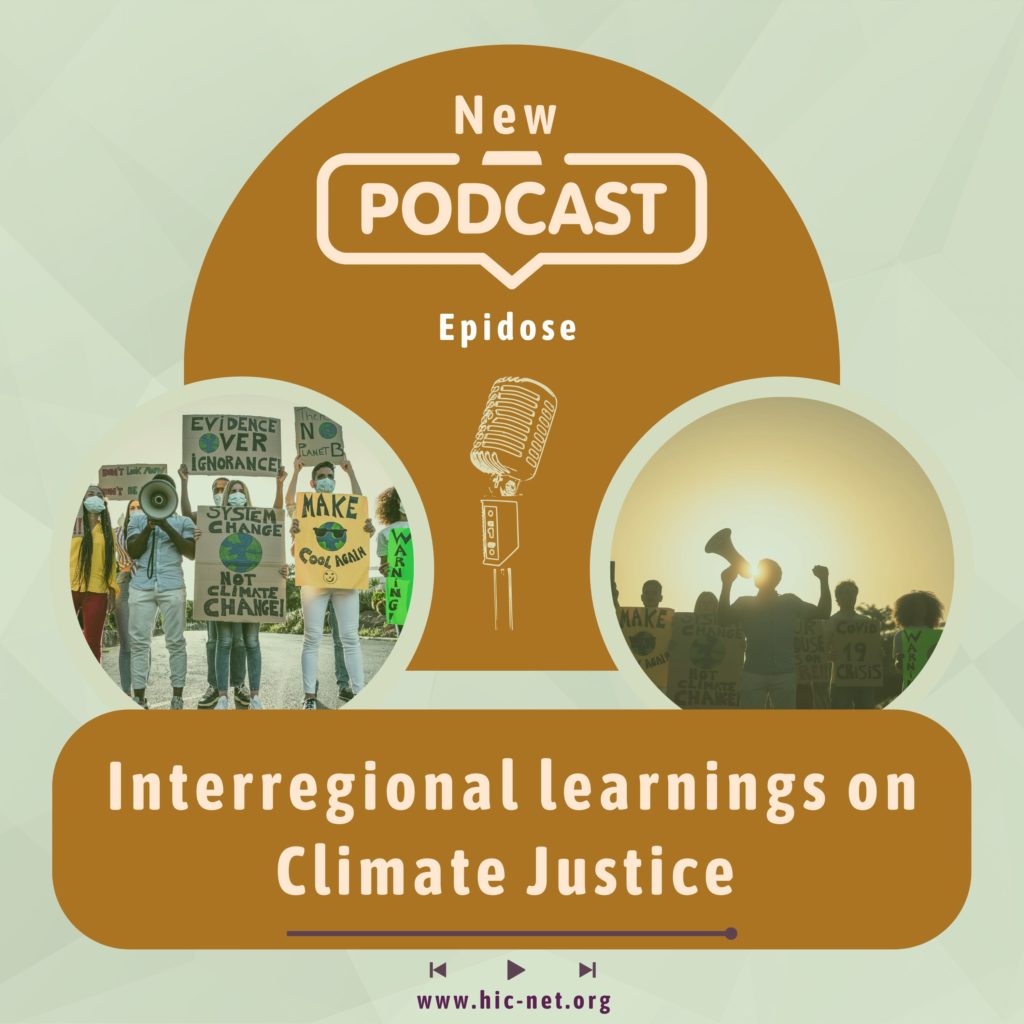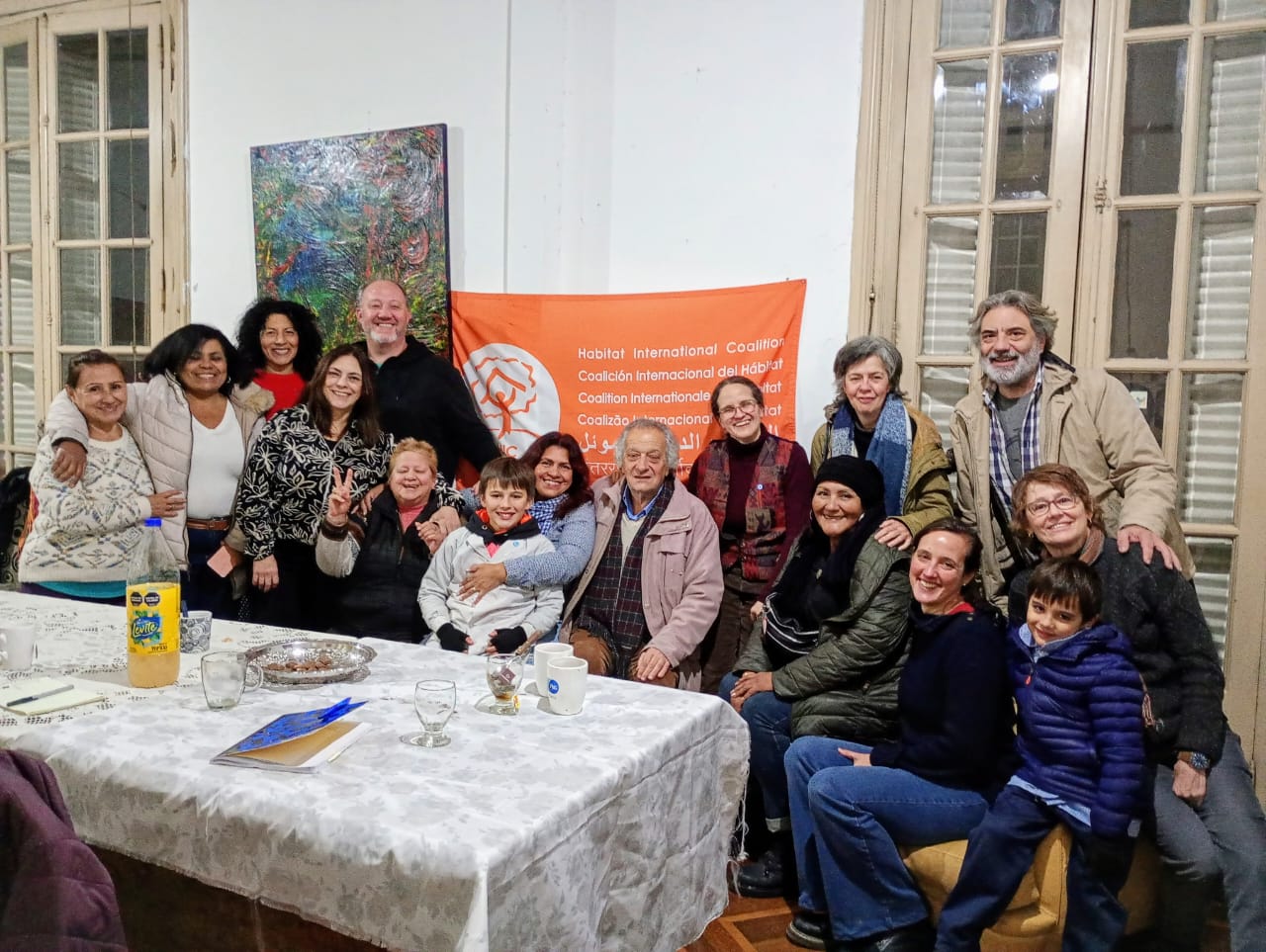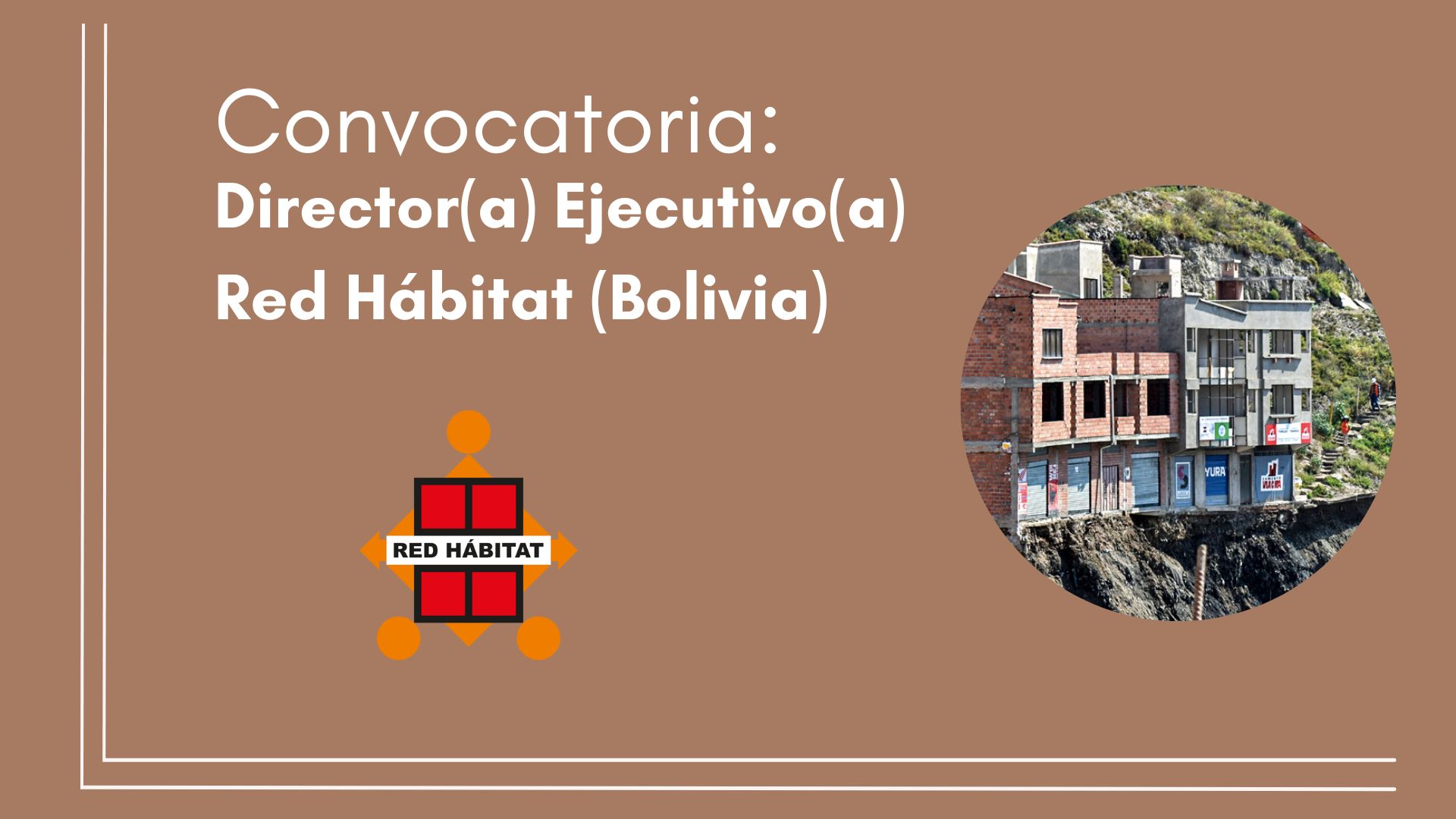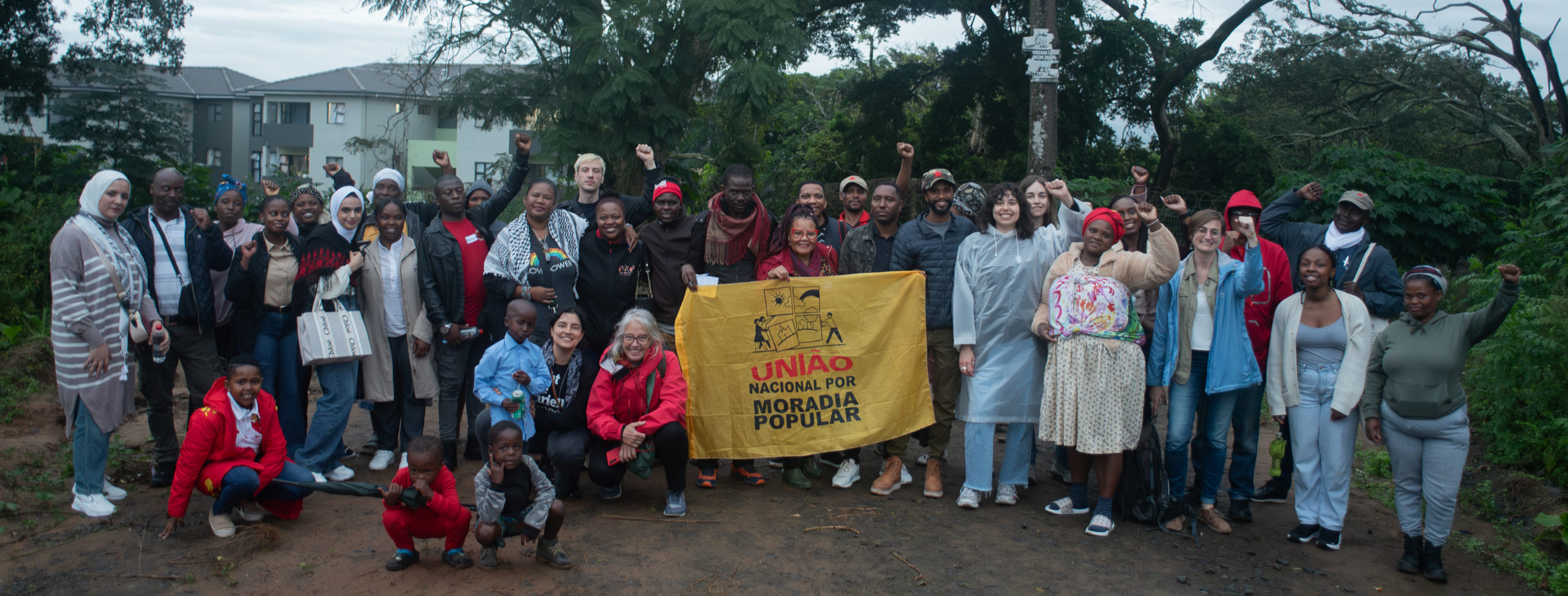A unique podcast episode is available now, to navigate through a comprehensive understanding of climate change, climate justice, and the necessary steps to advocate for the climate actions we need
The Climate Justice Co-Learning Space Podcast is an output of the HIC Climate Justice cross-regional exchange sessions that brought together 125 Members, Friends and Allies of HIC. The podcast is available in English, French and Spanish and will be soon in Arabic.
Narrated by the climate justice co-learning space facilitators, this podcast drives us deep into the common understanding on how to advance climate justice and habitat-related rights from a cross-regional perspective.
In light of diverse experiences and levels of vulnerability and influence, HIC Members co-develop a pro-climate justice advocacy actions aligned with our common vision on habitat and sustainable development.
What is the Co-learning Space on Climate Justice?
In October 2023, HIC Members, Allies, and Friends through a facilitated cross-regional mutual-learning process came together to exchange knowledge, practice, and experiences on climate justice. In four live sessions and informed by 4 critically-defined learning objectives for each of these sessions, HIC Members sought to develop a common understanding on how to advance climate justice and habitat-related rights from a cross-regional perspective to co-develop a pro-climate justice advocacy actions aligned with the global human rights agenda and sustainable development agendas.
Session 1 focused on defining and redefining climate change and climate justice. It discussed the impacts and climatic injustices disproportionately affecting vulnerable groups such as women, children, the elderly, and indigenous peoples. Key points raised included unfair distribution of climate finance, the recognition of inequalities, and the need for parity of political, economic, and social participation. Climate justice was emphasized as a response to the widespread and cross-cutting effects of climate change on society. It addresses disproportionate burdens, intersectional justice, differentiated responsibility, and the importance of agency rather than victimhood. Advancing climate justice involves localization, democratization, and the intersection between territorial aspects and climate vulnerability.
Session 2 delved into the legal, policy, and human rights framework of climate justice. It discussed the dangers human rights face as a consequence of climate change and the need for a human rights-based approach to climate justice. The session highlighted the global society’s response to climate change, advocacy approaches, and the role of civil society organizations. It also stressed the relevance and importance of joint participation in shaping, defining, and changing discourse.
Session 3 focused on identifying the differences and similarities of common struggles and strategies of climate justice across different contexts and regions. It explored solutions, measures, policies, and strategies at different levels, such as global, international, governmental, and community levels. Common threads emerging from the exchange included the differentiated impact of climate change, the importance of civil society organizations and coalitions such as HIC, and the relevance of joint participation in shaping advocacy strategies.
The final session, Session 4, aimed to pluralize advocacy work and craft together advocacy strategies and messages. It identified existing advocacy spaces and opportunities in justice and climate issues intersecting with habitat. Key points to take forward HIC’s agenda included advocating for meaningful climate solutions, promoting intergenerational justice and equity, pursuing a gender transformative approach, and demanding just and accountable climate financing. The session also highlighted the link between climate justice and HIC’s strategic objective of food sovereignty and outlined a core advocacy message and the principles to guide it. Resolutions moving forward included the need to support marginalized communities, emphasize historical responsibility, and form a working group focused on climate justice.
Overall, the sessions provided a comprehensive understanding of climate change, climate justice, and the necessary steps to advocate for meaningful climate solutions that address the intersecting issues of justice, equity, and human rights. The emphasis was on collaborative action, joint participation, and the need to create a cross-regional advocacy agenda.
Listen to the podcast now




